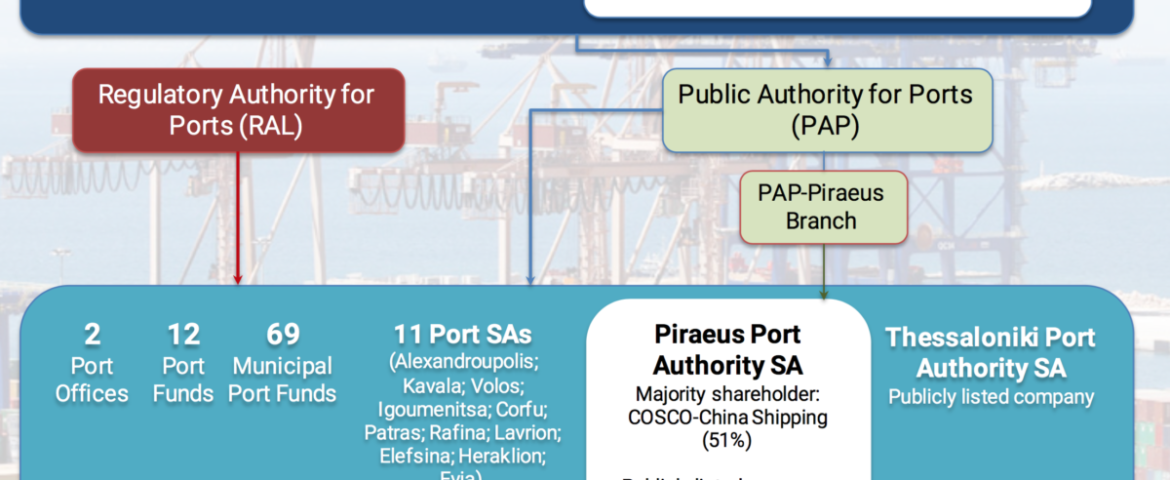August 11, 2016 is a historic day for Greek ports: This is the first day that Port of Piraeus, the major commercial port of the country operates under the ownership of COSCO-China Pacific Ltd.
Given (a) the long-term commitment of the Chinese government to gain this right in this very specific way (i.e. via a buy of the ‘master concession’ by state controled corporation) and develop Piraeus, (b) that the company (and the specific management team) operates since 2009 the major container terminal of the port in a most succesful way; and not least (c) the detailed due diligence process that Peking headquarters performed prior to this commitment, there are many reasons to believe that the efficiency and effectiveness of the port will improve – remains to be seen how and whether this will spill to other Greek ports.
These said, it is evident that the Greek state has failed in establishing a productive port governance system. While it opted for a model typical of developing countries (i.e. the selling of the ‘master concession’), it also created a “Greek prototype of port governance”, the specifics of which are detailed in the following PortGraphic. To many ‘it seems too Greek”. To most it is too bureaucratic to secure the public interest around the ports of the country. It is tempting to endorse the view of the latter.
Of course time will tell – but us (port economists) will have too many to study. Stay tuned!
PS1. Modernising port labour rules, and reforming the numerous Port Funds operating around the country are long and unnecessary pending decisions.
PS2. For those interested in the evolution of Greek ports the last decade, the English version of GREPORT 2016 will be available via PortEconomics (www.PortEconomics.eu) at the end of August.













